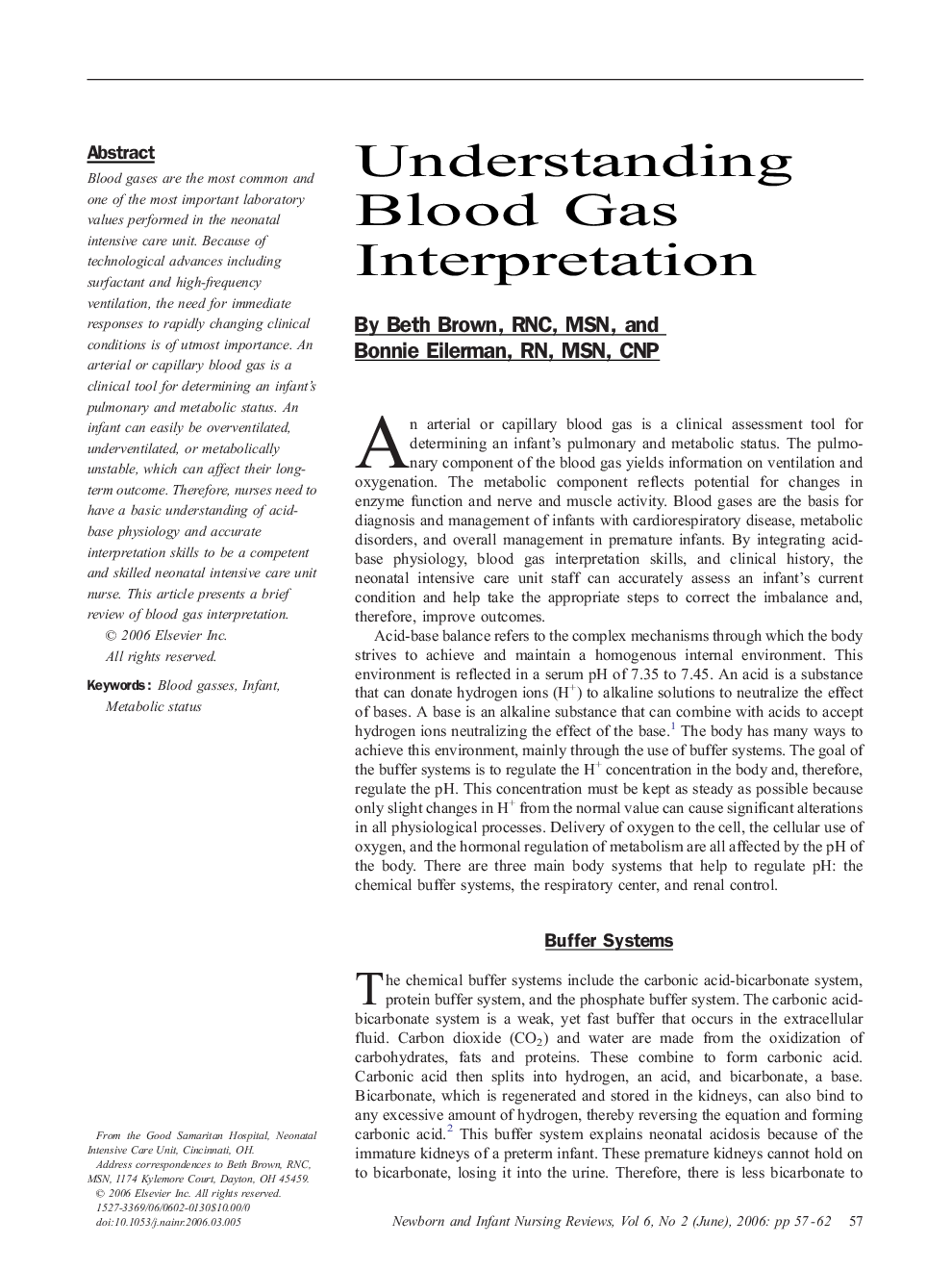| Article ID | Journal | Published Year | Pages | File Type |
|---|---|---|---|---|
| 2676229 | Newborn and Infant Nursing Reviews | 2006 | 6 Pages |
Blood gases are the most common and one of the most important laboratory values performed in the neonatal intensive care unit. Because of technological advances including surfactant and high-frequency ventilation, the need for immediate responses to rapidly changing clinical conditions is of utmost importance. An arterial or capillary blood gas is a clinical tool for determining an infant's pulmonary and metabolic status. An infant can easily be overventilated, underventilated, or metabolically unstable, which can affect their long-term outcome. Therefore, nurses need to have a basic understanding of acid-base physiology and accurate interpretation skills to be a competent and skilled neonatal intensive care unit nurse. This article presents a brief review of blood gas interpretation.
